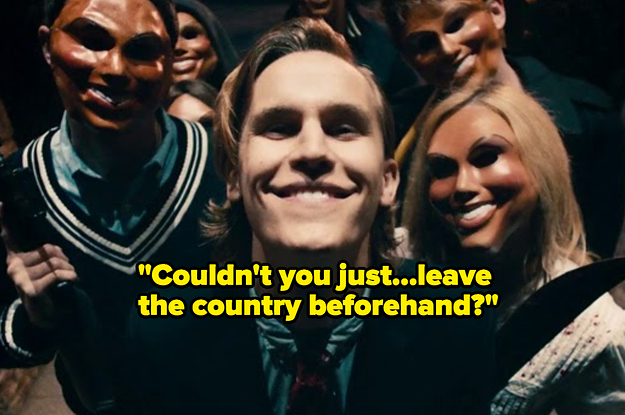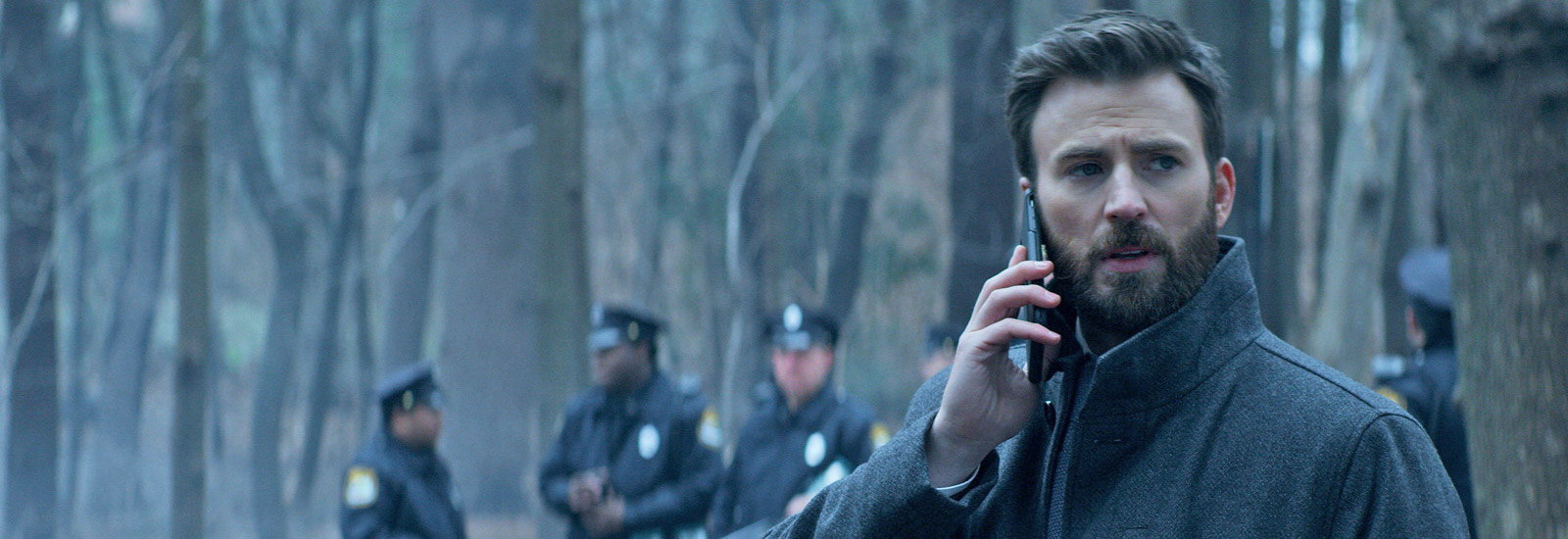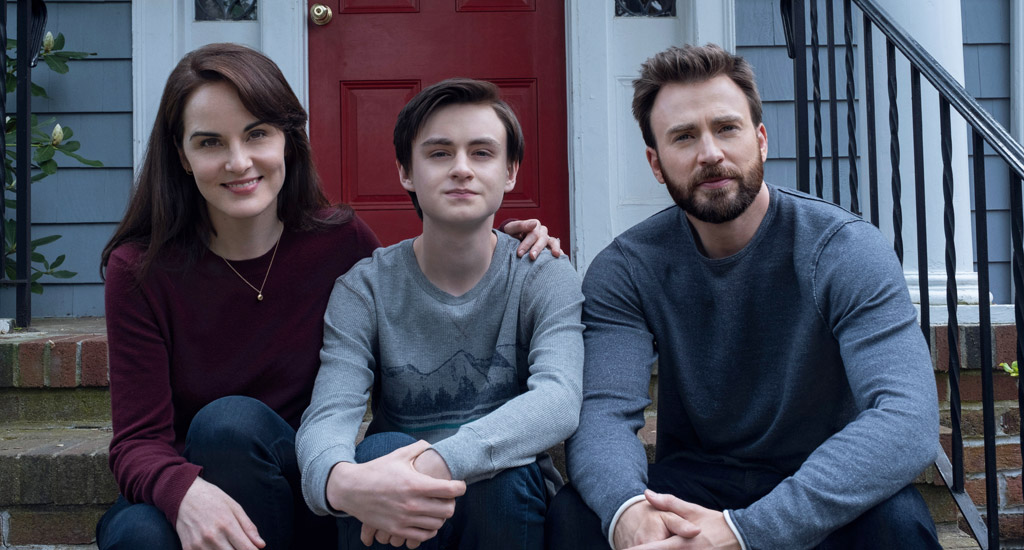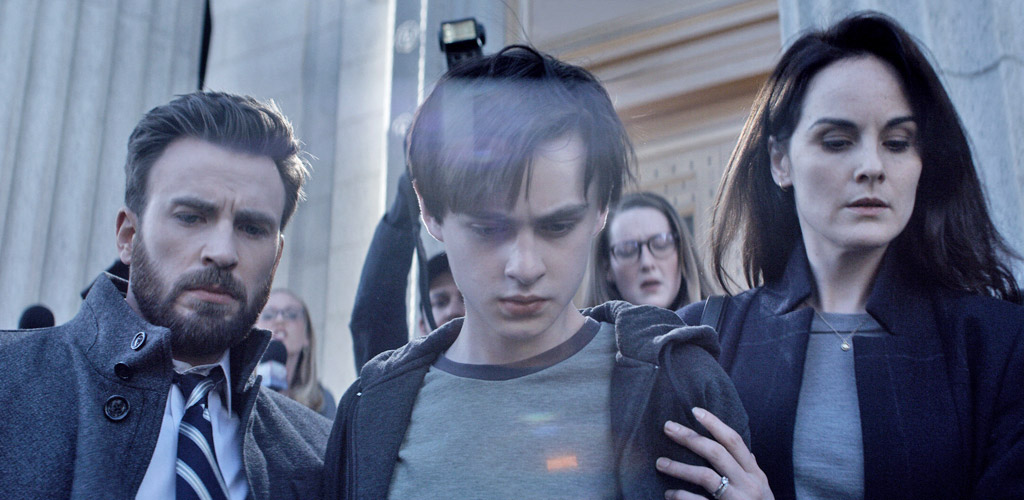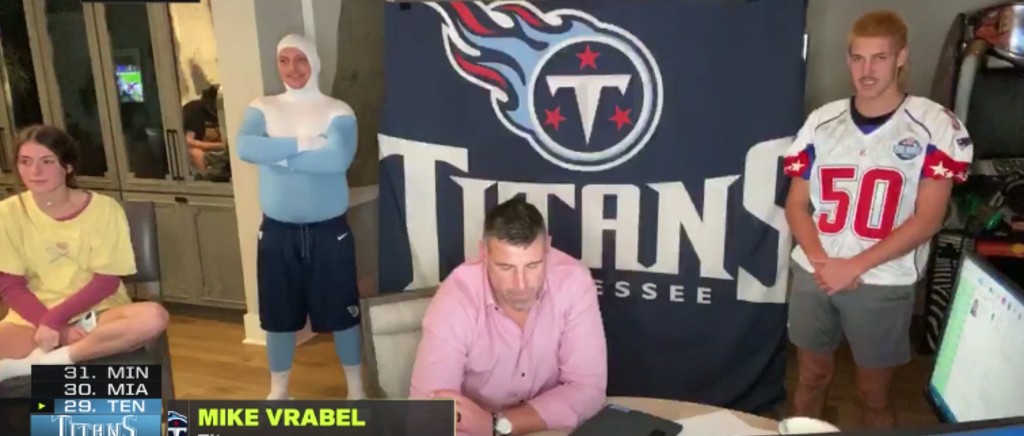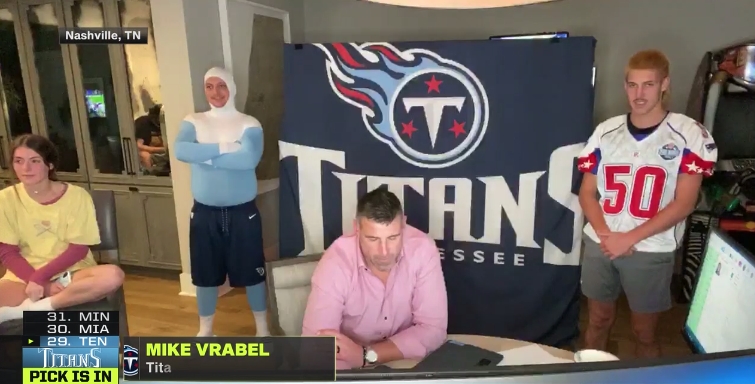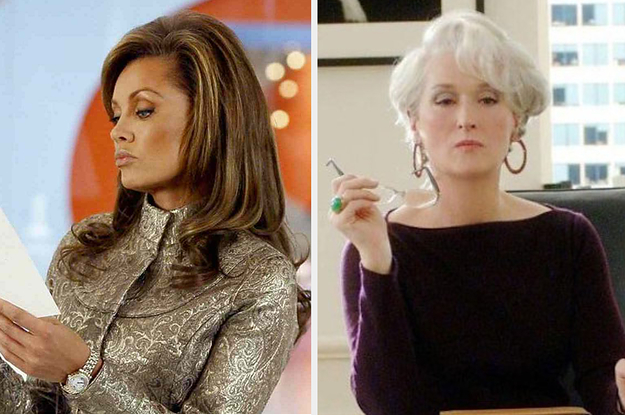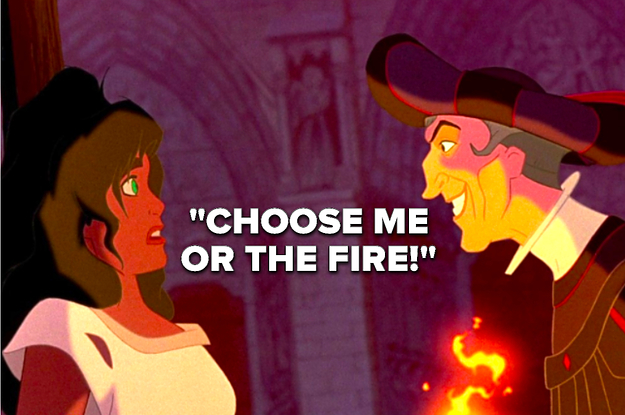Over the last few years, we’ve gotten to know Andy Richter a little better than being known as the funny, talented, and affable comedy partner in crime to Conan O’Brien. At least in as much as you can get to know someone through social media posts. I don’t want to say Richter pulls no punches, because Richter does consider what he’s saying, but he’s also open — about his divorce, his anxieties, his opinions on politics, and his life. The Three Questions podcast is a continuation of that, whether officially or no. In each episode, Richter utilizes that same openness in long, rich interviews with comics, actors, and interesting people, seeking to find out why his guests are who they are without a block on reflecting on his own experiences.
A few weeks ago, just prior to the start of widespread social distancing, we spoke with Richter about that openness, getting to the core of who people are, being happy with his life, and his work partnering with Conan O’Brien. We also did our best to get a sense of who he is.
I really like the approach with the podcast. Everyone you have on, it seems like there’s an established relationship or that they’re people that you know. Is that a part of the mix here or am I misreading?
Well, it frequently is. But then I also talk to people that I don’t know that well. But I try to come from the perspective of treating everybody like I’m going to start and just do a little mini-biography. Not just with dates and resumes but also with a little bit of introspection, self-reflection, and with a kind of philosophical angle. And what’s nice is that I think most people have known what they’re getting into. And for the people that I know really well, it’s an excuse to talk to them in a way that I normally wouldn’t talk to them. I wouldn’t say “tell me about your childhood” to somebody that I’ve known for 20 years. I’ve learned things from people that I’ve known forever just because of the format of the thing. I want a certain level of familiarity with everybody that comes on and I try and gain that by not only just being polite and relaxing and having a pretty good sense of how deep I can go with people, but also by being willing to share stuff myself.
I’m uncomfortable with the sort of borderline between creating an interesting show in which people say honest, real, and interesting things and exploiting people and tricking them into saying more than they might want to share in a public forum by exposing too much of themselves. I don’t want to just have people spill their guts for content. But I do think it [the podcast] is kind of an interesting thing to listen to and I think that when you hear people talk it’s better to hear honesty than it is to hear dishonesty. My idea is just to kind of have the kind of conversations that I like to have with people, which aren’t necessarily about pop culture, but more about, “Why do you think you are the way you are?”
Like you say, you open yourself up on the show, also on social media, talking about things that are going on in your life. Is that sort of how you walk that line? You wouldn’t go someplace that you’re not prepared to go personally so it’s a kind of one for you, one for them kind of thing?
I don’t look at it just like some kind of very strictly formulated quid pro quo. I also think there’s good value in not being ashamed of your humanity. And it’s a touchy thing because, especially when you’re in the public eye, people can be really shitty. I went through a divorce and there are people online — shit posters — who basically use that as, “Oh, here’s a new thing to be mean to him about.” Which is just mind-boggling to me. This is the dissolution of my family. [Laughs] This is the worst thing I’ve ever been through and now you’re yelling at me about it because you don’t like who I’m voting for for president so you’re saying shit about the breakup of my home? So you have to be careful.
But then again, I also feel like this is all real stuff and I’m not ashamed of being a real person and I’m not ashamed of having emotions and having difficulty and having pain in my life. And in many ways, the reason I say it out loud is so it doesn’t seem like a dirty little secret. It’s cathartic for me to talk about. I’ve been in therapy for a million years. It’s cathartic to talk about things and the human experiences is usually more similar than it is dissimilar between any given two people. So why not talk about it?
I mean, I see that and I am inspired by that. But I’ve also had things going on in my life that I’ve written about or thought about writing about and there has been a fear aspect that I couldn’t shake. Specifically with your divorce, when you decided to really open up about that, how did you get past “am I going to get bullied” concerns? Is this going to affect me in a bad way mentally if I see all these assholes online going at this?” How do you get past that?
Well, there was a time early on in this particular process that I was such a raw nerve that I don’t even know that there was a lot of thought involved. I was just kind of screaming into the void and you just kind of play it by ear… Or, at least I should say, I just kind of play it by ear and I try not to say things that could possibly be interpreted as biased against anybody involved in the situation. I try not to divulge personal things about people other than myself. It’s fine for me to talk about how I feel but if talking about how I feel somehow insinuates something about the way someone else is or behaves or does I don’t talk about it. Because it’s not fair. I only can tell my story.
So I am very careful about that. I’m also very careful to not be… You know, I made a couple of jokes on Twitter… very sort of benign jokes about, “now I’m a divorced dad living alone.” And I realized that’s not funny. To me, it felt like catharsis and the way I deal with lots of stuff is to make jokes, but I thought, “My kids aren’t going to think this is funny.” So I deleted them. Because they don’t have an ironic distance from it that even I might have. It wasn’t a joke to my kid and still isn’t a joke to my kids and it shouldn’t be. You learn, you make mistakes and you learn
How have they handled the divorce and kind of the aftermath and where you are now?
Pretty good. Everybody’s doing pretty good. But there’s always been lots of communication. I mean, everybody loves their kids, but I mean my kids, they’re really fantastic, emotionally evolved people. They’re both really smart and really sensitive and very caring and loving people. So it helps. But the main thing is, we talk about it. We don’t let stuff fester. And they understand that. That doesn’t mean I force them. They’re encouraged to talk about it and I’ll tell them that. I think that they feel we can talk to each other. A good way to parent is based on learning by negative example. And so not being able to share certain things was a frustration to me when I was a kid and then there was oversharing too. [Laughs] But finding that balance to me — it’s been very important.
How do you think your parent’s divorce kind of impacted you? You were very young, right?
Yeah. I was very young.
How did that impact your career, what you wound up doing?
The main thing it did was it made me sad and invited this sadness into my life that was like a character that was… In the story of my life, sadness was like a next-door neighbor. I guess probably as far as impacting my career, I mean, I will say that from an early age, I liked how making people laugh in my family eased the tension. So, I ended up, as time went on, becoming kind of the keeper of morale. The peacekeeper, the morale keeper, the entertainer, and that probably led right into… Hey, it’s a nice thing to make people laugh because it cuts the tension in life, and for a little while everyone feels happy. That probably was a big motivator when I started getting on stage to try and make people laugh.
The show [Conan] has never been overly political, even at the moment we’re in right now where it just seems to be everywhere. Is that something you like about the show? That it has the ability to kind of transcend things and just keep the peace, bring people together and laugh about things as opposed to necessarily reflecting on the scariness and ugliness sometimes?
Yeah. I mean, when we started, that was just the way that we were built. When Jon Stewart really took off on The Daily Show, that was the beginning of taking what was going on and things being so so overtly topical to the point where it was also kind of pointed. To me, just to be reductive about it, that always felt a little bit like preaching to the choir. A lot of that kind of humor, you’re not getting laughs, you’re getting cheers and I don’t care about cheers. I like laughs. Conan actually said to me once, “There are all kinds of people doing topical stuff and making political points,” and he said, “It’s so much more interesting to me to just be silly and be absurd and explore the absurd, and ultimately I think it’s doing a greater service to humanity.” There’s no test to prove that, but I agree with him and it’s what we started out doing. It’s what I’m used to doing. And also, quite frankly, I don’t find it that funny. I don’t find Trump that funny. What’s going on in the world, I don’t want to make jokes about it. I don’t want to have to think about, “What’s a funny bit about how dire everything is?” or “What’s the funny bit about the planet dying?” I’m just glad that I’m not in a place where I have to think up jokes about immigration or jokes about the administration’s ineptitude of handling a possible pandemic. Like ugh! I mean, I could think up jokes about them, but holy shit is that a joyless task.
I mean, for me personally, it’s a favorite that hits the spot from time to time. I can’t deny that. Sometimes it feels good.
Yeah.
There’s a Harold Ramis quote that I saw a couple of days ago and I’ve been thinking about it. I’m gonna butcher it, but it was basically about the idea of political satire and how it kind of gives us a false sense of action. We’re laughing at this thing, we’re smart, we know what’s wrong with the world and we can poke fun at it. But it’s not actually doing much of anything, which I think is an interesting thought.
Yeah. Well, and I also do think that when you take something out in the real world and then you run it through the entertainment machine you sort of… In some ways, it makes it seem less scary, but in other ways, it also, in some ways, makes it more possible. There’s something in me that feels like the more we joke about Trump, the more possible Trump is. I mean, I remember hearing that Will Ferrell always felt a little ambivalent about doing George W. Bush because he made George W. Bush kind of likable. Because Will Ferrell is likable. And he always felt kind of weird about that because when you watch Will Ferrell do George W. Bush, you think like, “Oh, this loveable idiot.” I mean, he may in real life be a lovable idiot, but he was at the front of some really fucking horrible, horrible shit.
It kind of sands down the thorns a little bit.
Yeah. To what Ramis was saying, you’re laughing about it, which feels like doing something, but you’re not really doing something about it. You’re demystifying it. You think you’re really fucking giving a good one… “Man, we really skewered Trump.” No, you didn’t.
Yeah, definitely. I noticed that you’d shared a great old school clip recently revealing a raid and a sting operation on the old show. How often do you revisit things like that? Are you able to look back with fondness on that stuff or do you mostly just kind of focus on the here and now?
Mostly on the here and now. One of our old writers, Brian Stack, who writes for Colbert now, he’ll frequently post old Conan bits because he has an encyclopedic photographic memory of comedy and comedy bits. So he’s almost sort of a little archivist in and of himself. Some of them are great and they make me proud like the one where the whole thing was a sting operation. It basically ends on a really sad and weird, lonely, downbeat note which… I don’t know a lot of other shows [would go there]. I mean, we’re the old men now, but I still feel like this is the funniest talk show on television. We still do stuff that I don’t think other people really do much of. And by that I just mean just fucking weird shit that you don’t see anywhere else. Somebody who might not get it will ask, “What the hell was that about?” And if you do get it, you’re like, “It was about being hilarious.” It’s not supposed to have a lot of meaning outside of this. But that was a good bit. I still am very proud of the place that we carved out for ourselves in late-night television.
It seems like you’ve been doing less with the remotes and things like that. Is that a conscious choice?
It just sort of evolved that way.
In addition to the podcast and being on-camera as Conan’s co-host, you’re also a producer on the show. Is it all bittersweet that your schedule keeps you from pursuing other options? It sounds like from everything that I have read that that was part of the reason you left originally. Has that lessened over time?
It’s lessened over time. I mean, I’m older too. I was itchier when I was younger and I had done that show for seven years. I didn’t set out to be Andy Richter on television, I set out to be a comic actor, a character actor. So there was kind of this unanswered question to me like, “Could I be doing this? Could I be succeeding in this area?” And so I took that leap and I did that. I was the star of three network television shows, which is in and of itself was a pretty big success, but also, I was chewed up and spit out in many ways. And when Conan got The Tonight Show and came back and he basically said, “Do you want to come back, work for a bunch of people that you know and love?” You don’t have to think of a pilot idea and go around town and tell people about it and then three people decide, “Well, we want two different people” and then you have to pick one of them and then you write the script and they tell you what’s wrong and then… It just takes so fucking long. He was saying to me, “Think of something while you’re driving to work and it’s going to be on TV tonight.” And I was really ready to get back to that.
When I see trailers for comedies and I know virtually everyone in them, I’m like, “Why can’t I be in that?” I mean, one of the reasons is, well, I’ve got this steady gig and I have to tell myself, “For the last nine years, I was home for dinner and I have two kids.” I mean, the kids are 19 and 13 now. But for the last ten years or so I was home for dinner, and there’s not a lot of people making comedy for television that can say that, to the level that I am and with this sort of steady income that I’ve had. It afforded me a lot of luxury. In terms of a steady paycheck and a lot of time for my family and for my kids. And also, I got to make fun TV. It never felt like I wasn’t making funny TV.
‘Conan’ airs Monday-Thursday on TBS at 11pm EST and you can listen to ‘The Three Questions With Andy Richter’ podcast on Apple.


